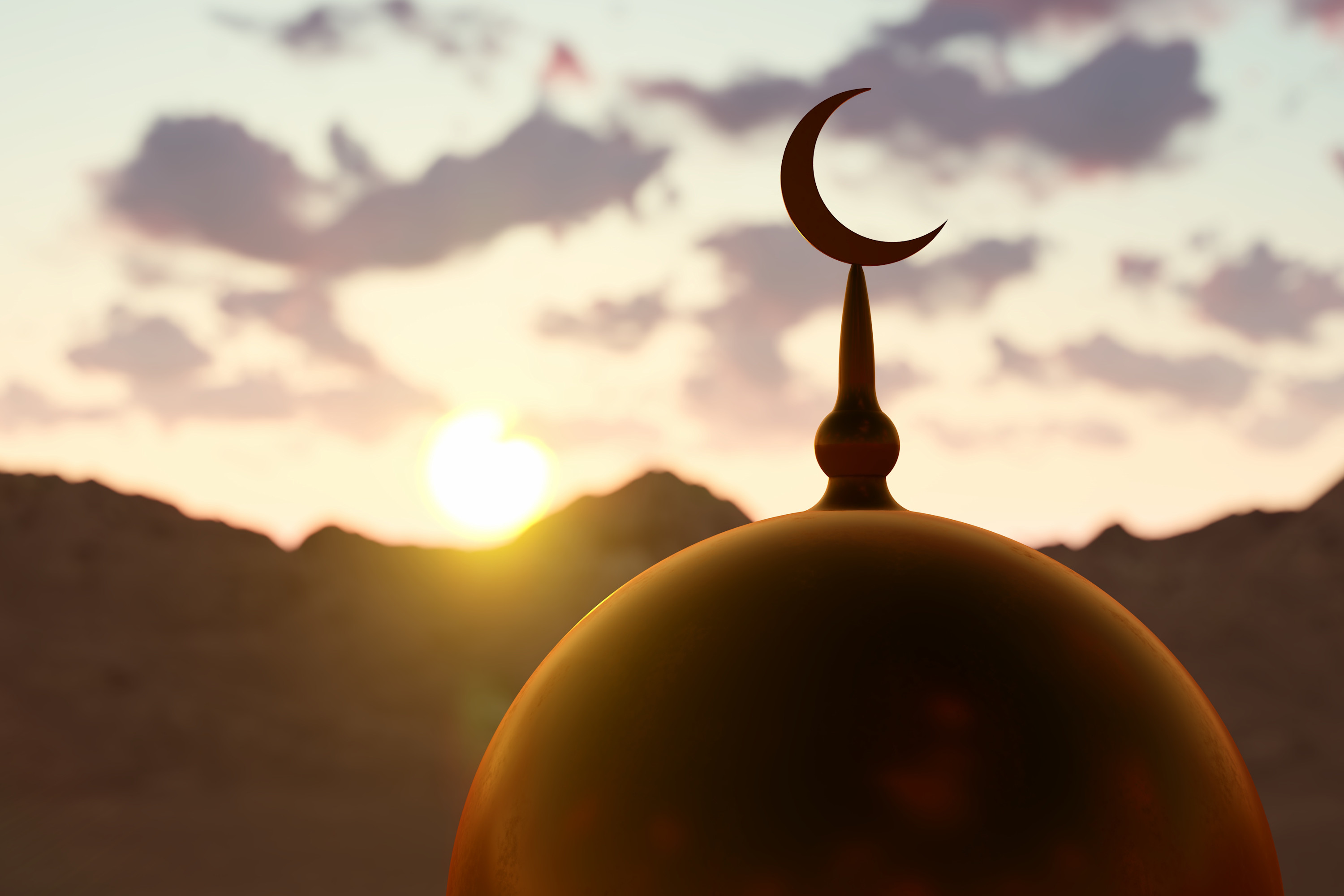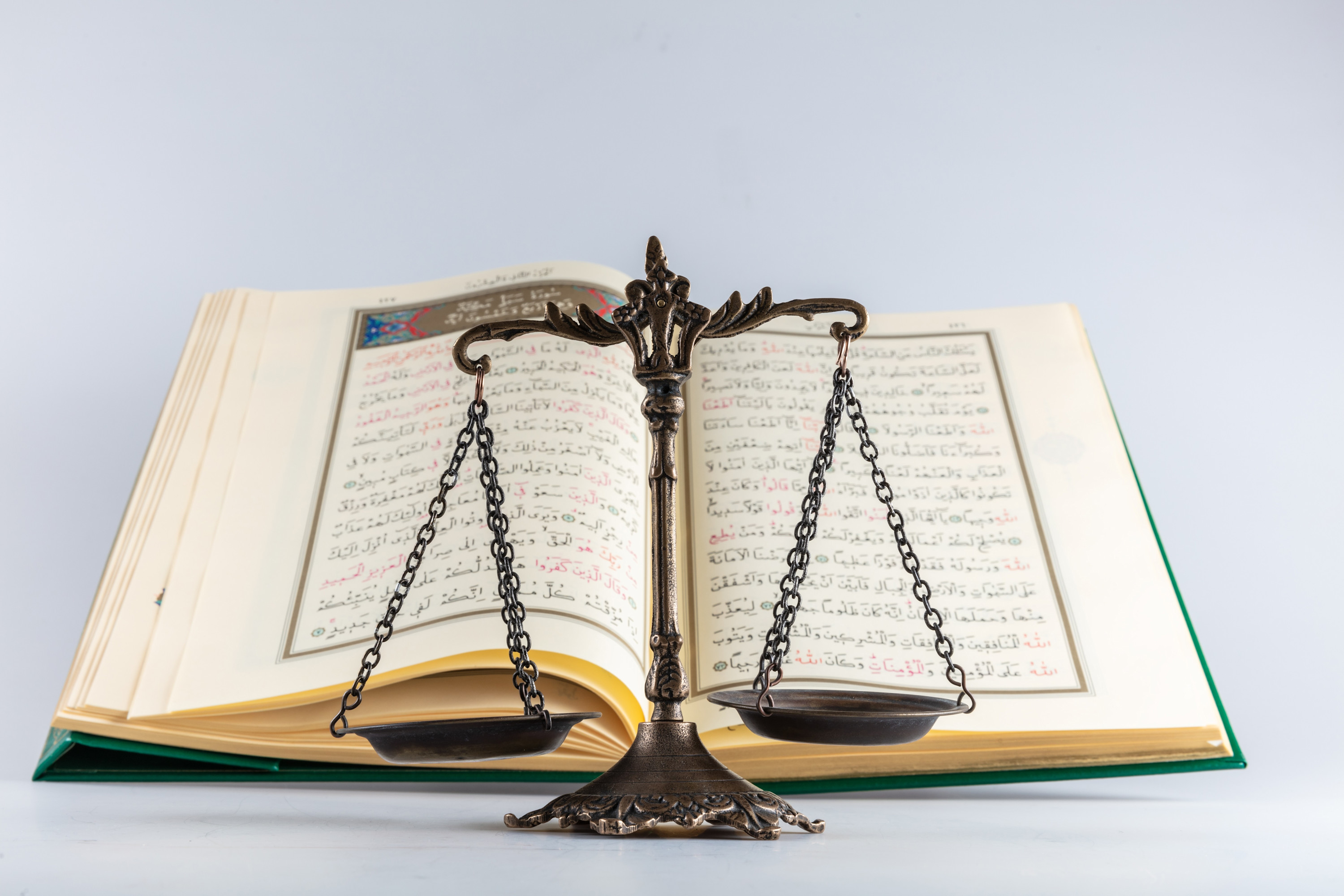
Islamic Beliefs and Practices
An introduction to some major Islamic beliefs and practices: Islamic Shariah, Jihad, Death, Intercultural conflicts, Shirk.
The Islamic Shariah (Laws of Islam)
Shariah is the divine code of practice which guides a Muslim in all affairs of his/her life, it is divided into two categories: Ebadat (system of worship), and Muamalat (system of dealing). The main source that governs all the laws of Islam is Allah through two channels; the first is the Quran, the book of Allah, and the second is the Sunnah, which is the authentic recording of the sayings, traditions of the Prophet (peace be upon him) and whatever his companion said or did to which he showed no objection.
What does Islam say about war?
Like Christianity, Islam permits fighting in self-defense, in defense of religion, or on the part of those who have been expelled forcibly from their homes. It lays down strict rules of combat which include prohibitions against harming civilians and against destroying crops, trees and livestock. As Muslims see it, injustice would be triumphant in the world if good men were not prepared to risk their lives for a righteous cause.
"War, Islam, and the Sanctity of Life: Non-Aggression in the Islamic Code of Combat" Essay by Hassan Shibly
What is Jihad?
Jihad literally means “striving, struggling or exerting more effort than usual for the betterment of one’s self and the community at large.” In Islam, Jihad does not mean “Holy war.” It is not a declaration of war against other religions and certainly not against Christians and Jews, as some people want it to be perceived. It has an internal, societal, and combative dimension.
The internal dimension of Jihad encompasses the struggle against the evil inclinations of the self; it involves every Muslim’s earnest, moral efforts to resist all internal or external inclinations towards the sin of all kinds. This includes the struggle to overcome problems, difficulties, tasks, and temptations.
The social dimension includes struggling against social injustice and creating a communal identity based on charity, respect, and equality. Also, it takes the form of calling people with the community to enjoin good and forbid evil.
Finally, the combative aspect of jihad is in the form of a just war to be used against aggression or to fight forces of tyranny and evil oppression, and, even then, to observe the strict limits of conduct prescribed by Islam that preserves the life of innocents and the sanctity of the environment.
How do Muslims View Death?
Like Jews and Christians, Muslims believe that the present life is only a trial preparation for the next realm of existence. Basic articles of faith include the Day of Judgment, resurrection, Heaven and Hell. When a Muslim dies, he or she is washed, usually by a family member, wrapped in a clean white cloth, and buried with a simple prayer preferably the same day. Muslims consider this one of the final services they can do for their relatives, and an opportunity to remember their own brief existence here on earth. The Prophet (peace be upon him) taught that three things can continue to help a person even after death; charity which he had given, knowledge which he had taught and prayers on their behalf by a righteous child.
Traditions Interfering with Islam
The adherence to Islam (as with other religions) varies with the strength of the beliefs of the people. Sometimes culture and traditions interfere with religion or even overshadow the religion. Some people claim that something in their culture or tradition is part of the religion when it is not. Or do things that have no justification in Islam and are prohibited, yet that gets portrayed by others as the tenets of the religion of Islam.
Also, the beliefs and practices of Muslims should not be judged according to the beliefs and the laws of other religions since some lawful practices of one religion can be portrayed by other religions as unlawful or even wrong.
Sometimes the conduct of certain people can be offensive to others and vice versa in spite of the fact that this conduct is not meant to offend others. For example, Islam commands Muslims to lower their eyes when they are talking to people of the opposite gender out of respect and honor for others. This can be offensive to other cultures where eye contact is very important when communicating.
To live in peace and harmony in this world, one should realize that people are created differently and vary in the colors of their skin, their languages, and in their religions, cultures, and traditions. Some people may be different, but it does not mean that they are bad or evil.
Shirk: Association of other with Allah (Glory be to Him, the Exalted)
Shirk is divided into two categories: Major Shirk and Minor Shirk
MAJOR SHIRK (MAJOR POLYTHEISM) It necessitates the failure of deeds and remaining forever in the Hellfire as per the Qur’anic account. “But if they have joined in worship others with Allah, what they used to do would have been of no benefit to them”. Ch.6: V.88. Allah says, “It is not for the Mushrikun (polytheist, idolaters, pagans, disbelievers in the Oneness of Allah), to maintain the Mosques of Allah (i.e. to pray and worship Allah therein, to look after their cleanliness and their building, etc.,), while they witness against their own selves of disbelief. The works of such are in vain and in Fire shall they abide. Ch.9 V.17. Whoever dies in a state of Shirk, will not be forgiven and will not be allowed into Paradise, pursuant to God saying, “ Verily Allah forgives not (the sign of) setting up partners in worship with Him but He forgives, whom He pleases, sins other than that.” Ch.4: V.116 and Allah says: “ Verily whosoever sets up partners in worship with Allah then Allah Has Forbidden Paradise for him and the Fire will be his abode; and for the Thalimoon (polytheists and wrong-doers) there are no helpers.” Ch.5: V.72. Shirk categorized under this type includes calling those who are dead, praying to idols for help and for relief, pledging to them, and offering animals for slaughter as a sign of obedience to them, etc.,
MINOR SHIRK (MINOR POLYTHEISM) It is the type proved by the texts of the Quran and Sunnah to be called Shirk, but it is not categorized under Major Shirk. Such as hypocrisy in some deeds, to swear by those other than Allah and saying Allah Will and so and so will, and the like. Following are some pertinent Hadiths of our Prophet (Peace be upon him). “What I fear most for you is the Minor Shirk”. When asked what Minor Shirk is, he said “Disguised Shirk”. Reported by Mahmoud ibn Labeed al Ansari (RAL) and narrated by Imam Ahmed, AtTabrani, and Al-Bayhaqi. “He who swore by something other than Allah shall be regarded as Mushrik.” Reported by Umar ibn al-Khatab (RAL) and narrated by Ahmed. ‘He who swore by others than Allah had fallen in Kufr or Shirk” reported by Ibn Umar (RAL) and narrated by Abu Dawood and At-Tirmidhi. “Do not say Allah wills (ordains), and so and so (too) wills, but say that Allah wills (ordains), and then so and so wills.” Reported by Huthayfah ibn al Yaman (RAL) and narrated by Abu Dawood. This type of Shirk (i.e. Minor Shirk) does not necessitate apostasy of remaining in Hellfire, but it lacks the perfection of the obligatory Tauheed
Examples of Shirk
Disguised Shirk may fall into both types i.e. Major Shirk and Minor Shirk. It may fall in the major Shirk such as ‘the Shirk of hypocrites’ because they conceal their bad faith and pretend to be Muslims to cover themselves.
To wear a ring, twine, or anything similar for protection from or removal of harm of affiliations, is an act of shirk
Ruqa (incantations), Talismans, and Amulets
Whoever seeks blessing through a tree, a stone, etc.
To vow other than Allah is an act of Shirk
To seek refuge from other than Allah is a part of Shirk
To seek help from other than Allah (Istighatha) or to invoke other than him is an act of Shirk
The condemnation of the one who worships Allaah at the grave of a righteous man and how this equates to the worship of man
Exaggerations in the grave of righteous persons tend to make them like idols worshiped besides Allah.
Tags:
Tags:

Admin
Shahada services muslims to support them in the endeavor of seeking knowledge and connecting with their ummah. Shahada ai allows users to ask questions relating to Islam and receive answers backed by reliable sources of knowledge, including Quran, Hadith, Sirah, and Tafsir sources.










